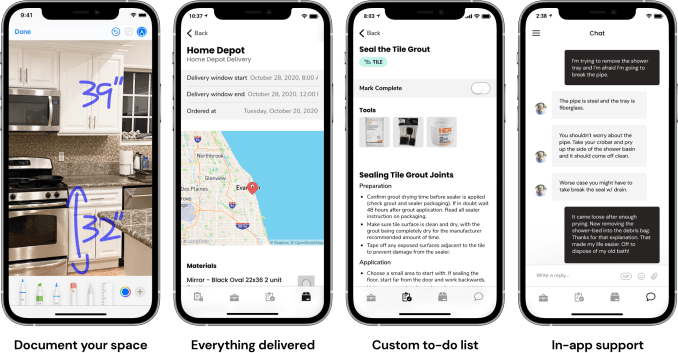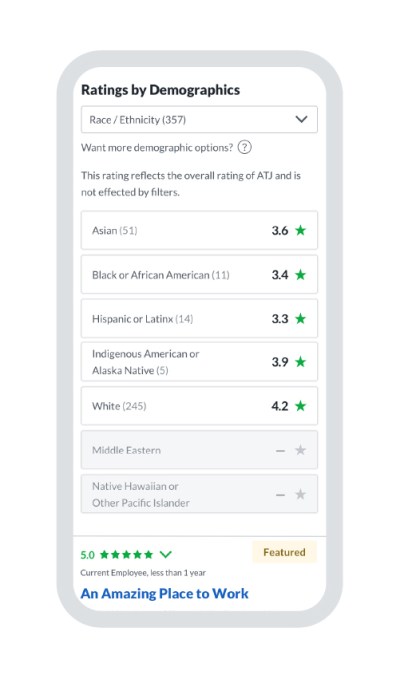You’ve landed on the web version of the weekly Human Capital newsletter. Sign up here to get this in your inbox every Friday at 1 p.m.
Welcome back to Human Capital. A lot happened this week pertaining to on-demand companies like Uber, Postmates, DoorDash and Instacart, and their respective gig workforces. Meanwhile, New York’s attorney general hit Amazon with a lawsuit over its warehouse labor practices and Twitter made some new commitments to increase diversity at the leadership level by 2025.
But that’s not all. Google fired another AI top ethicist, Margaret Mitchell. The company also internally published the results of its investigation into what happened with Dr. Timnit Gebru.
Apologies in advance for a slightly lengthier than usual newsletter but it’s all worth knowing, I promise.
Quick note: Human Capital is getting a new name because it seems to be causing some confusion, so don’t be alarmed when this hits your inbox next week with a different name. Name TBD.
The essential workforce
New bill aims to regulate Amazon warehouses
California assemblyperson Lorena Gonzalez, who was behind gig worker bill AB 5, introduced new legislation that would regulate productivity quotas from companies like Amazon, Walmart and others. Called AB 701, the bill aims to better protect warehouse workers by implementing statewide standards.
“While corporations like Amazon are collecting record profits during the pandemic, employees in their warehouses are being expected to do more, go faster and work harder without clear safety standards,” Assemblywoman Gonzalez said in a statement. “It’s unacceptable for one the largest and wealthiest employers in the country to put workers’ bodies and lives at risk just so we can get next-day delivery.”
NY AG sues Amazon
New York Attorney General Leticia James filed a lawsuit against Amazon for allegedly failing to provide adequate health and safety measures for its workers. As part of the lawsuit, James alleges Amazon retaliated against workers Christian Smalls and Derrick Palmer after they complained to Amazon about the company’s lack of support during the COVID-19 pandemic. James’ suit came after Amazon’s preemptive lawsuit against her office, alleging that workplace safety is not something she has authority over.
While Amazon and its CEO made billions during this crisis, hardworking employees were forced to endure unsafe conditions and were retaliated against for rightfully voicing these concerns. Since the pandemic began, it is clear that Amazon has valued profit over people and has failed to ensure the health and safety of its workers. The workers who have powered this country and kept it going during the pandemic are the very workers who continue to be treated the worst. As we seek to hold Amazon accountable for its actions, my office remains dedicated to protecting New York workers from exploitation and unfair treatment in all forms.
Meanwhile, of course, Amazon warehouse workers in Bessemer are actively seeking to form a union. This week, reports showed Amazon was altering traffic signals as a way to prevent workers from being able to effectively talk with each other.
Ex-Postmates VP speaks out about the gig economy
Vikrum Aiyer, the now-former vice president of global public policy and strategic communications at Postmates, penned a memo to his former colleagues and other stakeholders in the gig economy outlining what he thinks needs to happen next in the industry.
In his letter, Aiyer says “it would be a mistake for us to think that mild tweaks to worker classification, or a single state ballot measure, create a durable path forward for meaningfully addressing what Americans truly worry about: the chance to work, take care of their families, and not fret about what comes next.”
Postmates drivers say they’ve become prey to scammers
A new report in The Markup showed scammers sometimes target Postmates workers. In one instance, a scammer stole $346.73 from a worker. You can read the full story here.
In related news, Uber, which owns Postmates, recently hired labor researcher and Uber critic Alex Rosenblat to lead the company’s marketplace policy, fairness and research efforts.
Uber drivers demand PPE and compensation for time spent sanitizing vehicles
Uber drivers shut down Market Street outside of Uber’s San Francisco headquarters to demand the company provide them with enough personal protective equipment during the COVID-19 pandemic. They also want to be compensated for time spent sanitizing vehicles in order to keep themselves and riders safe.
Uber lobbies in the EU for Prop 22-like legislation and loses key battle in the U.K.
Meanwhile, over in the EU, Uber is lobbying for Prop 22-like standards. In a white paper, Uber proposed a “new standard” for platform work, where it outlines the need to offer some benefits to workers while simultaneously steering away from the possibility of collective bargaining among workers. From TC’s Natasha Lomas:
A universal standard for platform benefits may sound progressive, but the notion of “relevant” benefits for gig workers risks fixing this labor force to a floor far below agreed standards for employment — closing off any chance of a better deal for a class of workers who are subject to persistent, algorithmic management.
In the UK, the Supreme Court ruled Uber drivers are employees and therefore entiteld to minimum wage and holiday pay. Also from Lomas:
The case, which dates back to 2016, has major ramifications for Uber’s business model (and other gig economy platforms) in the U.K. — and likely regionally, as similar employment rights challenges are ongoing in European courts.
DoorDash drivers are banding together to decline low-paying orders
The strategy, reported on Vice, is designed to beef up the base pay for drivers by working together to game the system.
From Vice:
The fundamental principles of the official #DECLINENOW movement rely upon all drivers in the movement to exercise their right to use the decline button to decline lowball offers for higher, more feasible ones,” reads a pinned post on the main Facebook group. “Declining lowball offers forces the algorithm to raise the base pay UP on the declined offer for the next driver as the need for DoorDash to service the order increases. In turn, Dashers will see an increase in higher paying offers, many times doing less deliveries for more money and a much higher paying ‘Per mile rate.’”
Turning jobs into gig work
Bloomberg had a really good feature about how the tech industry’s gig economy is impacting workers in other industries. It’s a must-read, but here’s a snippet:
Companies in a range of industries could use the Prop 22 model to undermine or eliminate employment protections. A week after the election, Shawn Carolan, a partner at early Uber investor Menlo Ventures, wrote an op-ed heralding the potential to spread Prop 22’s vision of work “from agriculture to zookeeping,” including to “nursing, executive assistance, tutoring, programming, restaurant work and design.”
President Biden nominates Jennifer Abruzzo to lead NLRB as general counsel
Abruzzo is currently the special counsel for strategic initiatives for the Communications Workers of America. For those unfamiliar, CWA has been making a name for itself in the tech industry by helping tech companies like Glitch and Alphabet unionize. Her appointment could prove to be quite beneficial for tech workers and gig workers alike.
In a statement, CWA President Chris Shelton said:
There is no one who has a more thorough grasp of the National Labor Relations Board and the purpose of the National Labor Relations Act than Jennifer Abruzzo. She is a brilliant attorney who understands how the actions of the NLRB impact the daily lives of people at their workplaces. President Biden’s selection of Jennifer as the NLRB General Counsel shows that under his watch, issues affecting working people will be handled by people like Jennifer who have dedicated their lives to helping workers — and not union busters like we saw during the Trump administration. We hope Jennifer’s confirmation process is speedy — working people need her at the helm of the NLRB now more than ever.
Instacart at odds with workers again
The company has reportedly suspended workers’ accounts for cancelling orders. According to Vice, these workers said they had good reason to cancel some of these orders, citing things like fears of safety and someone providing the wrong address.
Instacart, however, said it’s part of a fraud prevention policy that places accounts on pause if they suspect fraudulent or suspicious activity.
Stay woke
Twitter commits to increasing diversity at leadership level
Twitter has committed to the Silicon Valley Leadership’s Group 25×25 pledge, which challenges companies to do one of two things:
- Either make underrepresented employees 25% of its leadership team by 2025
- Or increase the number of underrepresented people in leadership positions by 25% by 2025
Currently, Twitter’s leadership team is just 6.5% Black, 3.9% Latinx, 2.8% multiracial and less than one percent Indigenous, according to its most recent diversity report.
Examining the “pipeline problem”
As I mentioned last week, I had the pleasure of chatting with Dr. Joy Lisi Rankin, a researcher at AI Now, about her research pertaining to the pipeline problem myth in tech. The story also features some insight from Uber Chief Diversity Officer Bo Young Lee, as well as Paradigm Director Courri Brady.
You can check that out here.
Tech engineer alleges sexism and bullying at Mailchimp
Kelly Ellis, a now-former principal engineer at Mailchimp, left her job earlier this week, alleging she was paid less than her male counterparts. In an email to employees, a higher-up at Mailchimp said the company “thoroughly and independently investigated the allegations and found them to be unsubstantiated.”
Glassdoor lets you filter ratings by demographics
Despite efforts from companies to create equitable environments, it’s clear that employees of certain demographics, like Black women, sometimes have very different experiences from their counterparts. Glassdoor aims to better surface those experiences through a new feature that allows folks to filter ratings by demographics.
Justice Through Code teaches returned citizens how to code
Justice Through Code, a semester-long coding and interpersonal skills intensive that takes place at Columbia University, aims to provide alternative paths for people once they reenter society.
The program has support from tech companies like Amazon Web Services, Coursera, Google and Slack.
Promise raises $20 million Series A round
Promise, a platform that makes it easy for people to navigate payments for child support, utilities, parking tickets and more, raised a $20 million Series A round. This round makes Promise founder Phaedra Ellis-Lamkins one of a handful of Black women who has raised more than $1 million.
Hey, Google…WTF?
Google fired Margaret Mitchell, the founder and former co-lead of the company’s ethical AI team. Mitchell announced the news via a tweet.
Google confirmed Mitchell’s firing in a statement to TechCrunch, Google said:
After conducting a review of this manager’s conduct, we confirmed that there were multiple violations of our code of conduct, as well as of our security policies, which included the exfiltration of confidential business-sensitive documents and private data of other employees.
News of Mitchell’s firing came shortly after Google internally announced the results of its investigation of Gebru’s exit, according to Axios. The company did not reveal what it found, but said it would implement some new policies to enhance diversity and inclusion at Google.
Google has a new ethical AI lead
Meanwhile, Google appointed Dr. Marian Croak to lead its responsible artificial intelligence division within Google Research, Bloomberg reported earlier today. Croak was previously the vice president of engineering at the company.
In her new role, Croak will oversee the teams working on accessibility, AI for social good, algorithmic fairness in health, brain fairness, ethical AI and others. She’ll report to Jeff Dean, SVP of Google AI Research and Health.
TC Sessions: Justice is almost here!
Also, we’re a little over a week away from TechCrunch Sessions: Justice, which takes place March 3. Be sure to snag your $5 ticket here to hear from folks like Backstage Capital’s Arlan Hamilton, former Amazon warehouse worker Christian Smalls, Congresswoman Barbara Lee and others.



